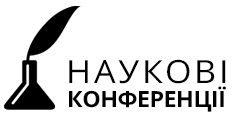Should road signs read 'Drive Slow' or 'Drive Slowly'? Which is grammatically correct: They don't have none or They don't have any? Given 'books' as the plural of 'book' and 'they' as the plural for 'she' and 'he', what's wrong with 'y'all' and 'yous' as plurals for 'you'? Are 'between you and I' and 'between you and me' both right, and who decides what's right and wrong in language, anyway? And who put 'ain't' in the dictionary? Is English going to the dogs, and is that what the fuss is all about? Languages often have alternative expressions for the same thing ('car' and 'auto'), and a given word can carry different senses ('river bank' vs. 'savings bank') or function as different parts of speech ('to steal'—verb; 'a steal'—noun). Because languages naturally adapt to their situations of use and also reflect the social identities of their speakers, linguistic variation is inevitable and natural. But given diverse forms, meanings, and uses, dictionary makers and grammarians must choose what to include in their works—whose language to represent and for use in which kinds of situations? In some nations, language academies have been established to settle such matters, as with the French Academy, formed nearly four hundred years ago, but to date English speakers have repudiated suggestions of a regulating body for their language. Instead, entrepreneurs like Noah Webster have earned their living by writing dictionaries and grammars, usually with a mix of description and prescription. Increasingly, though, scholarly grammars and dictionaries are exclusively descriptive. [1, с. 68]
ACTUAL PROBLEMS OF COMMUNICATIVE APPROACH CONCERNING MODERN LINGUISTIC VARIETY
Кіра Кустова (Херсон, Україна) | Завантажити статтю
